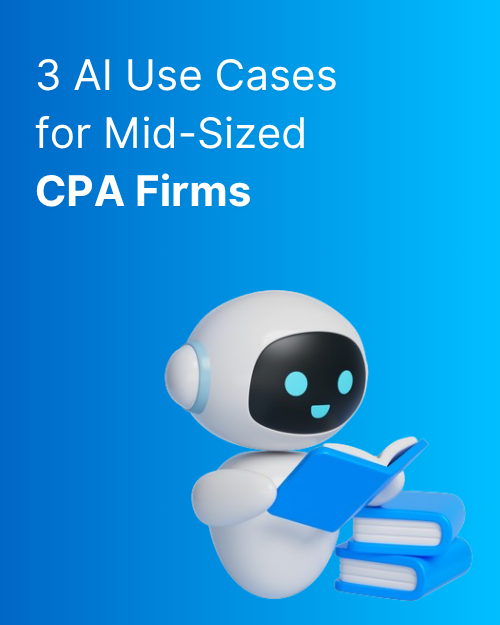Generative AI has quickly evolved from a disruptive innovation to a boardroom priority. Every business leader is now under pressure to "do something with AI." Yet the gap between experimentation and scaled impact remains wide. According to Google Cloud’s recent whitepaper, fewer than 10% of enterprises have successfully transitioned GenAI pilots into full-scale, production-grade deployments.
Why is that?
Because GenAI is not just about large language models (LLMs) or clever prompts—it’s about building a resilient, governed, and scalable ecosystem that integrates across your organization. The most common failure isn’t the technology—it’s the lack of a platform strategy.
.png)
In this article, I share 10 essential insights—rooted in both experience and the Google whitepaper—that business leaders need to understand to move from pilots to platforms, and from potential to performance.
1. Most Enterprises Are Stuck in Pilot Mode
Only 1 in 10 GenAI projects reach production.
Despite significant interest and investment, most GenAI initiatives remain trapped in prototyping. Technical silos, governance gaps, and unclear ROI pathways slow progress beyond internal demos.
Strategic Insight:
Treat GenAI like any mission-critical business capability. Without a structured roadmap and executive commitment, pilots become dead ends instead of growth engines.
.png)
2. Models Aren’t the Bottleneck—The Stack Is
The problem isn’t the model—it’s everything around it.
High-performing models are now accessible via API. The challenge is stitching together data sources, orchestration, monitoring, and security. Without a cohesive platform, each use case requires custom plumbing.
Strategic Insight:
Shift focus from model selection to architectural readiness. A well-integrated platform unlocks repeatability, scalability, and speed.
.png)
3. Prompt Engineering is Not a Scaling Strategy
Prompts alone won’t deliver business value at scale.
While prompt engineering is valuable for refining model output, it’s only one part of the system. Without robust data, governance, and evaluation, even the best-engineered prompts fall short in production settings. In fact, I’ve explored this topic in depth in a dedicated article: What Business Leaders Should Know About Prompt Engineering
Strategic Insight:
Formalize prompt development like software—version control, testing, optimization, and governance must be part of the pipeline.
.png)
4. Retrieval-Augmented Generation (RAG) Is Foundational
RAG connects GenAI to your enterprise knowledge.
Foundation models don’t know your company’s policies, products, or people. RAG architectures allow models to dynamically pull in relevant context from internal sources, making responses more accurate and useful.
Strategic Insight:
No GenAI deployment should go live without a RAG layer. It’s the key to minimizing hallucinations and maximizing trust.
.png)
5. Decentralized Tools Create Redundancy and Risk
Multiple teams, multiple tools, zero cohesion.
When each business unit builds its own GenAI stack, you end up with overlapping databases, disconnected pipelines, and inconsistent security. It slows innovation and increases operational overhead.
Strategic Insight:
Standardize on a shared platform to enable cross-team efficiency, enforce governance, and reduce cost duplication.
.png)
6. Platforms Accelerate Time-to-Value
A platform-centric strategy delivers faster outcomes.
Platforms like Google's Vertex AI unify infrastructure, models, tools, and governance. They eliminate the need to manually integrate and test disparate services for every new use case.
Strategic Insight:
Speed matters. A platform strategy shortens development cycles and helps you scale successful use cases across the enterprise.
.png)
7. Governance Must Be Built-In, Not Bolted-On
Compliance isn’t optional—it’s critical.
From data lineage to access controls, GenAI systems must be governed like any other enterprise system. Decentralized approaches often lack the visibility and auditability regulators expect.
Strategic Insight:
Select platforms that include embedded governance—identity management, usage logging, content filtering, and model version tracking.
.png)
8. Agents Are the Future of GenAI Automation
Moving from prompts to goal-driven systems.
GenAI is evolving beyond response generation into agents that can plan, act, and adapt. These agents can automate multi-step workflows and interact with APIs, CRMs, and ERP systems.
Strategic Insight:
Business leaders should explore agent-based automation for tasks that require decision-making, not just text generation.
.png)
9. Measure What Matters: Business KPIs, Not Just Model Scores
GenAI success should show up in your P&L.
Accuracy metrics like BLEU or perplexity matter to engineers—but executives need to see improvements in customer satisfaction, process time, cost savings, and revenue impact.
Strategic Insight:
Every GenAI project must align with a clear business metric and report progress like any other digital initiative.
.png)
10. Standardization Enables Scale
Build once, scale everywhere.
Without a shared platform, every GenAI use case starts from scratch. A platform-first approach allows reuse of models, pipelines, and governance policies across departments and regions.
Strategic Insight:
Think like a product company. Build internal tooling, documentation, and APIs so every business unit can move fast without reinventing the wheel.
.png)
Final Word: From Experimentation to Enterprise Strategy
The window for GenAI experimentation is closing. The winners will be those who evolve from isolated pilots to enterprise-grade platforms—where models, data, governance, and outcomes are aligned.
As a business leader, your job is not to pick the best LLM. Your job is to build the foundation so that every team can use AI safely, consistently, and effectively.



.png)


.png)
.png)
























Christian Financial Credit Union
Huntington National Bank
Paqqets
Meridian Medical Management
Thales Group
Meridian Medical Management